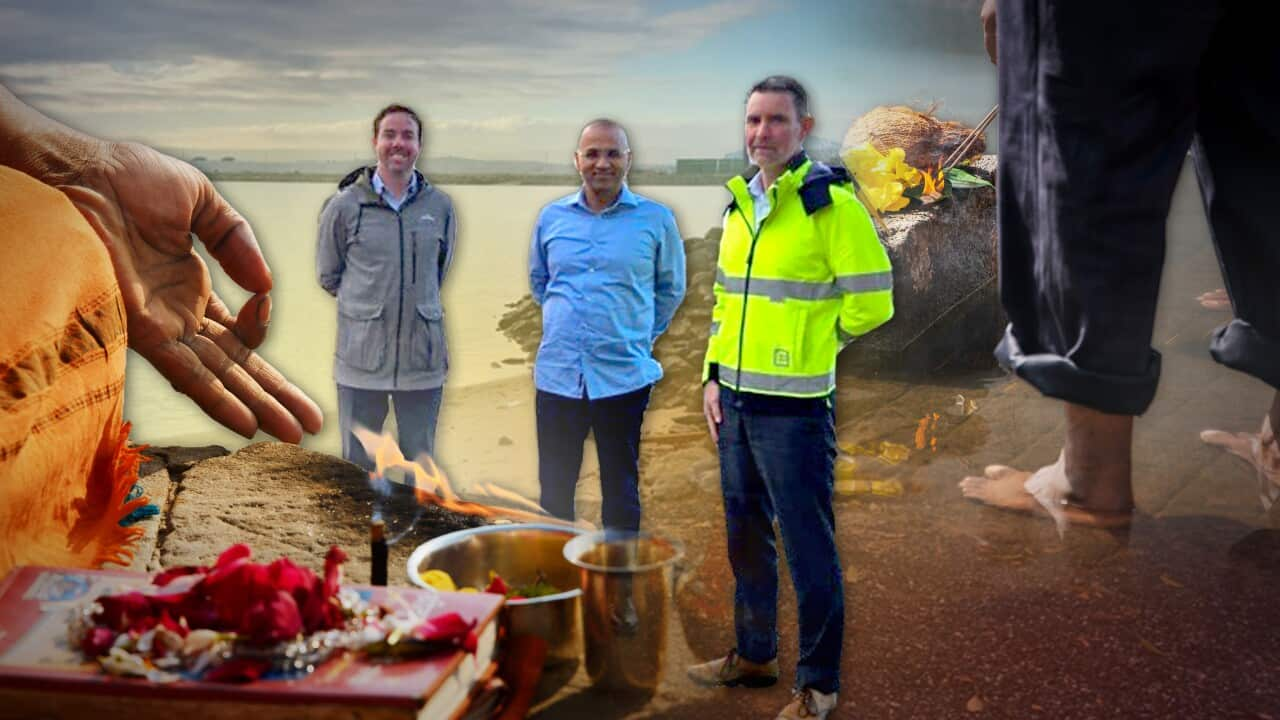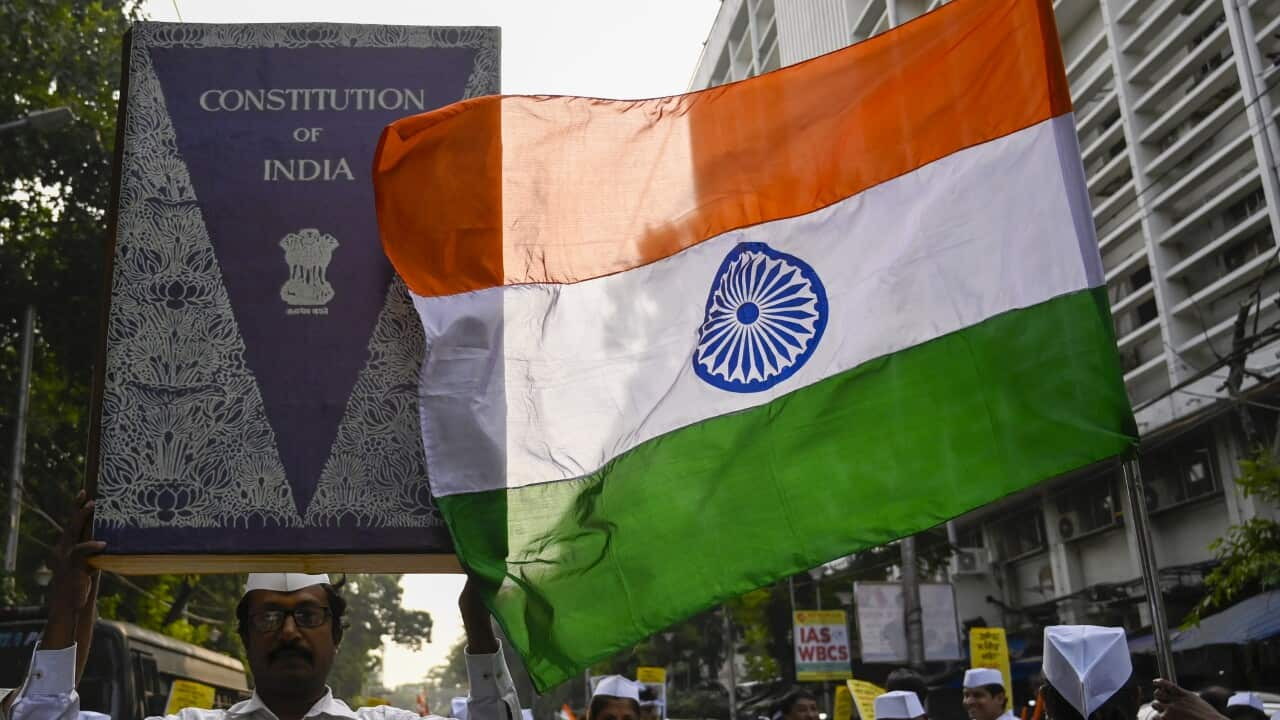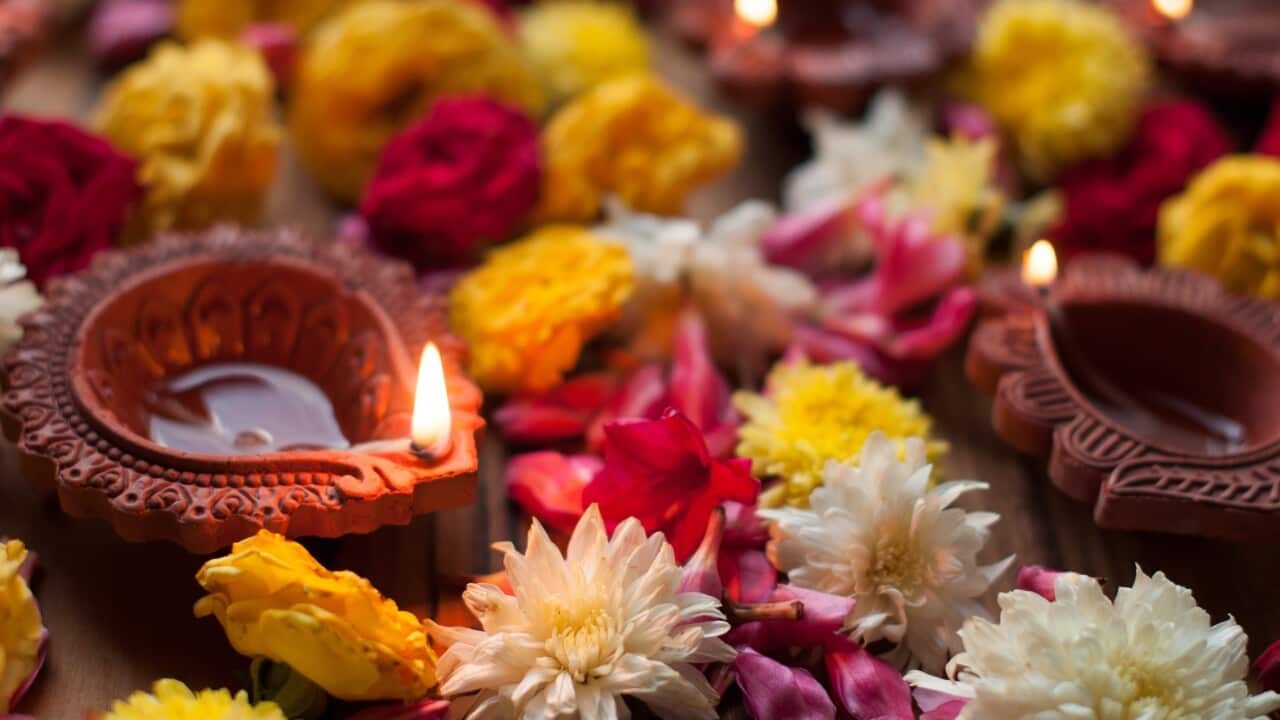Key Points
- In Hindu tradition, the deceased are cremated and their ashes are scattered into flowing water after the funeral.
- In South Australia, a beach site has been designated for the ritual, with the local council approving $75,000 for constructing safe access to the water.
- Members of the Indian community say the site signifies ‘acceptance’ of practices that ‘many people were doing in secret’.
When Rajendra Pandey started volunteering for the Indian community through the non-profit community organisation (South Australia), his goal was to establish culturally sensitive services for Hindus, Jains, Buddhists and Sikhs.
He noticed that South Asian communities in Australia lacked a culturally sensitive and safe way to scatter ashes, and this motivated him to establish in Adelaide.
'Returning the body to nature'
Pandey said the search for a designated space for last rites, involving the scattering of ashes and related prayers, began a few years back.
He recalled how a community member, after experiencing a personal loss, approached his organisation with the idea of a "water ceremony site".
"After the body is cremated, Hindus immerse the ashes in flowing water as a symbol of returning the body to nature," he explained.

Adelaide-based Rajendra Pandey is associated with Vishva Hindu Parishad Australia. Credit: Supplied
"One member even confided in me that he felt embarrassed while scattering ashes here and many said they were worried it might be illegal due to environmental reasons."

As per Hindu rituals, the ashes of the deceased are scattered in flowing water after the body is cremated. (Representative image of a Hindu priest on the banks of the River Ganges in Varanasi, India.) Credit: AP/AAP
After approaching several councils in Adelaide, Pandey said he finally received approval from the Snowden Council.
As per an official document of the , the community has been given a spot at Snowden Beach for conducting "water ceremonies" on weekdays from 9-11am without any permit or fee.
The council confirmed that it approved a budget of $75,000 for the construction of a staircase at the beach, ensuring safe access to the water.

From left to right: Vishva Hindu Parishad President Rajendra Pandey with Mayor of the City of Port Adelaide Enfield Claire Boan and Adelaide resident Venkat Lingampally. Credit: Supplied
"The establishment of stairs and seats will improve the overall amenity and the community’s use of Snowden Beach’s water frontage."
Growing acceptance and respect
Set on the bank of the Port Adelaide River at Largs North, Harishchandra Ghat will be a designated site for dispersing ashes after cremation, along with other related religious rituals.

A priest performs prayers with the family of the deceased, using flowers and pinda (rice balls). (Representative image). Credit: IDREES MOHAMMED/EPA/AAP
Pandey emphasised the importance of this site approval for the community.
"It signifies acceptance and acknowledges our integral presence in this country," he said.
"Anyone who wishes to scatter ashes there can book to use the site."
Often, there's hesitation in sharing our culture, fearing it may be perceived as unusual or awkward, but that's not the case if we do it right and confidently.Rajendra Pandey
He added that such a site could eliminate the costly repatriation of bodies.
"There are Hindus and Sikhs living in Australia who used to take the ashes to the motherland and now people want to scatter their ashes here," he said.
Adelaide resident Ramendra Prasad, who recently utilised the site to scatter the ashes of a family member, echoed similar sentiments.

Ramendra Prasad and his family held the last rites rituals at Harishchandra Ghat in Adelaide. Credit: Supplied
"Having a designated place brings us great peace of mind, knowing this is where it can happen. However, when we perform these rituals, we ensure the beach is left clean," he added.
Mayor of the City of Port Adelaide Enfield Claire Boan said: "We recognise how incredibly meaningful the practice of conducting water ceremonies is to the Hindu community.
"Council appreciates our role in assisting community in undertaking important cultural practices and is committed to promoting a safe and welcoming environment."
Dos and don'ts of scattering ashes
In Australia, regulations regarding the scattering of ashes vary by state.
For instance, in public places such as reserves or botanical gardens, you may require a permit.
According to Australian laws, if a community wants to use council land for funeral services, they must contact the relevant council to discuss the feasibility of this request and then the council will evaluate the proposal in the context of its responsibilities for managing community land.
Pandey explained that there could be a risk of people leaving behind ritual objects like idols or food.
"Our team usually goes there to clean up the area, and we've observed that community members are generally very compliant with the cleanliness rules," he said.
The council maintained such a practise did not pose any threat to the environment.
"The council has consulted with the EPA (Environment Protection Authority) to understand the potential environmental risks associated with releasing ashes into the Port River. Given the intended location, frequency, and volume of ashes being released, we do not anticipate any adverse environmental impact," the council said.







